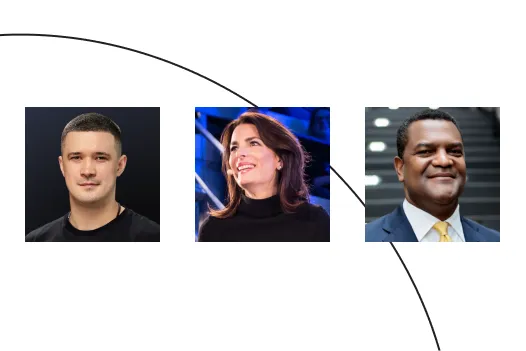Following the launch in Ukraine of Diia.AI, an accessible AI assistant for government services, a conversation between First Deputy Prime Minister of Ukraine Mykhailo Fedorov; Annette Kroeber-Riel, Google’s Vice President of Government Affairs and Public Policy - Europe; and Marcus Jadotte, Google Cloud’s Vice President of Government Affairs and Public Policy, on how governments can lead by bringing AI to public administration.
Marcus Jadotte: First Deputy Prime Minister Fedorov, Ukraine’s digital leadership, as shown by your top global rankings, is inspiring. Building on this strong foundation—which includes being ranked first globally for digital participation thanks to the introduction of mobile-first services—you are now delivering tangible AI-supported services, like income certificates, across the government. What was the key to moving so quickly from AI strategy to the real-world delivery of AI-enabled services?
First Deputy Prime Minister Fedorov: The key is a clear vision that informs every decision and project. Ukraine already had a strong foundation in digital transformation, so integrating AI was a natural, strategic next step. And we have an ambitious goal: to rank among the world’s top three countries in terms of AI integration and adoption in the public sector by 2030.
This ambition has helped galvanise the use of AI across all parts of public service, turning vision into action. We’ve already launched the world’s first national AI assistant on the Diia portal; introduced AI assistants for support teams, legal departments, and HR; and are integrating AI into education, defense tech, and more.
